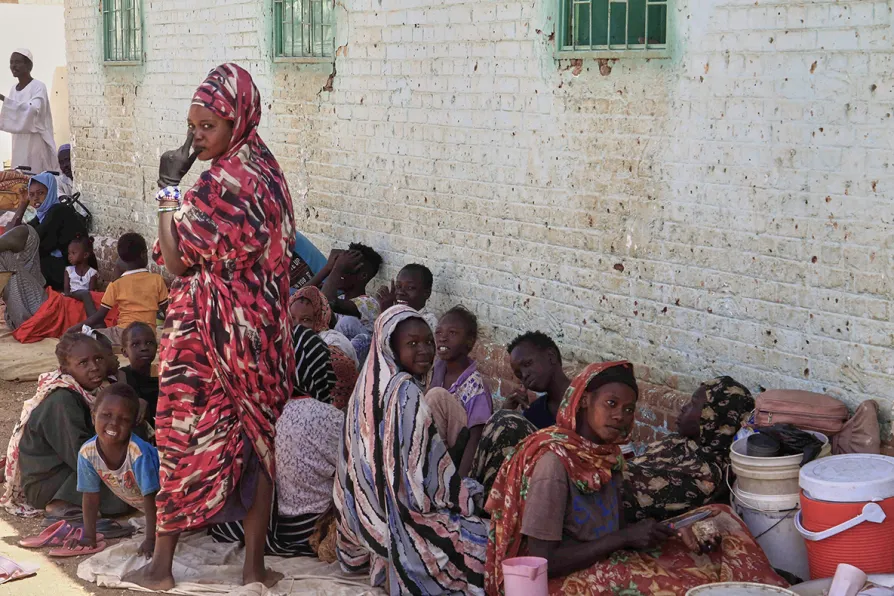
 Sudanese displaced families take shelter in a school after being evacuated by the Sudanese army from areas once controlled by the paramilitary Rapid Support Forces in Omdurman, Sudan, March 23, 2025
Sudanese displaced families take shelter in a school after being evacuated by the Sudanese army from areas once controlled by the paramilitary Rapid Support Forces in Omdurman, Sudan, March 23, 2025
THE International Criminal Court believes that war crimes and crimes against humanity are continuing to take place in Sudan’s vast western Darfur region.
Deputy prosecutor Nazhat Shameem Khan told the United Nations security council on Thursday that the depth of suffering and the humanitarian crisis in Darfur “has reached an intolerable state,” with famine escalating and hospitals, humanitarian convoys and other civilian infrastructure being targeted.
“People are being deprived of water and food,” she said. “Rape and sexual violence are being weaponised. Abductions for ransom or to bolster the ranks of armed groups have become common practice.”
“And yet we should not be under any illusion,” Ms Shameem Khan warned the council. “Things can still get worse.”
Sudan plunged into conflict in mid-April 2023, when tensions between its military and the paramilitary Rapid Support Forces (RSF) turned violent in the capital Khartoum, with the fighting then spreading to other regions including Darfur.
At least 40,000 people have been killed and nearly 13 million displaced, including to other countries, according to UN agencies.
US president Joe Biden’s administration, just before it left office in January, determined that the RSF and its proxies were committing genocide.
Ms Shameem Khan said that in recent weeks the ICC has closely tracked reports of the dire situation in North Darfur, whose capital El Fasher is besieged by RSF and their affiliates.
The RSF, which controls the capitals of all other states in Darfur, has also attacked famine-hit Zamzam and other camps for displaced Sudanese in North Darfur.
“On the basis of our independent investigations, the position of our office is clear: we have reasonable grounds to believe that war crimes and crimes against humanity have been and are continuing to be committed in Darfur,” Ms Shameem Khan told the council.
This conclusion, she said, is based on documentary, testimonial and digital evidence collected by ICC investigators during the past six months.
Ms Shameem Khan said the court considers the situation in Darfur “of the utmost importance,” insisting that it will not be deterred until the perpetrators face justice.
Two decades ago, Darfur became synonymous with genocide and war crimes, particularly by the notorious Janjaweed Arab militias, against populations that identify as central or east African.
Up to 300,000 people were killed and 2.7 million were driven from their homes.
Ms Khan said those in Darfur now “inflicting unimaginable atrocities on its population” should know that, while they may feel a sense of impunity, Janjaweed leader Ali Kushayb is currently on trial and the ICC hopes his prosecution will be the first of many.










